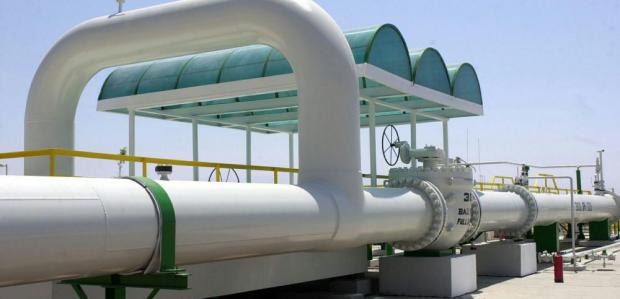DEPA, the Public Gas Corporation, intends to make investments worth between 160 million and 200 million euros over the next few years, the company’s chief executive, Theodoros Kitsakos, remarked yesterday during a speech delivered at the Athens Energy Forum.
Kitsakos, while presenting the corporation’s strategic plans and objectives, said DEPA plans to pursue client-and-society focused growth based on the expansion of the company’s commercial presence in Greece, expansion of its network, utilization of technologies concerning LNG and CNG, reduction of energy costs, and job creation.
The corporation’s ten-year plan, according to the DEPA boss, includes expanding supply to 16 main provincial cities in four parts of the country – Eastern Macedonia, Central Macedonia, Central Greece, and Western Greece – through the construction of 850 kilometers of new network infrastructure to be added to the exisiting network measuring 460 kilomters for a total of just over 1,300 kilometers.
Other DEPA plans include development of new gas connections for 140,000 households, 19,000 businesses, and 350 major industrial consumers, the chief executive noted.
The company also plans to create new jobs to develop supply to new regions and cities, Kitsakos said, citing Tripoli, Corinth, Karpenisi, and Amfisa as examples.
According to the DEPA head, annual natural gas consumption will grow to eight billion cubic meters over the next fifteen years, or by 0.6 billion cubic meters per year for an annual growth rate of 20 percent from the current level of three billion cubic meters.
Kitsakos stressed DEPA remains fully dedicated to all international projects being developed in the wider region.
Commenting on the Greek-Bulgarian IGB Interconenctor, the DEPA chief said the EU’s determination to support the project regardless of the results of a second market test currently being conducted comes as good news that assures the project’s development. DEPA will join forces with Edison for the pipeline project.
The positive news for the IGB project is also good news for the planned LNG terminal station in Alexandroupoli, northeastern Greece, Kitsakos noted.
The extent to which the Alexandroupoli LNG terminal may impact Greece’s existing LNG terminal in Revythoussa, an islet in the Saronic Gulf, close to Athens, needs to be carefully examined, the DEPA chief said.
A planned upgrade of the Revythoussa LNG terminal promises to double this facility’s capacity. If, in addition, the Alexandroupoli station is also constructed, Greece would possess an LNG storage capacity of between eight billion to nine billion cubic meters, which is excessive for the Greek market, Kitsakos explained.
The plan for IGI Poseidon, an offshore pipeline to link the Greek and Italian natural gas transportation systems, is virtually ready and DEPA is ready to collaborate with any company that is willing to help develop the project that may carry natural gas from Russia or other sources, such as the Caspian Sea, Kurdistan, Iran, even Turkmenistan, the DEPA chief stressed.
On East Med – to be comprised of a network of submarine and overland infrastructure offering a direct link for deposits in the southeast Mediterranean area with the European gas network via Greece – Kitsakos said the EU’s objective is to diversify its supply sources. He added that the East Med plan meets all EU criteria.





